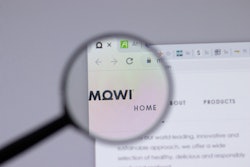Selko, Nutreco’s feed additives brand, gathered next generation scientists during the World Mycotoxin Forum (WMF) 14th conference to explore novel thoughts on managing mycotoxins and achieving more resilient food systems. As a signature WMF event, the Selko Young Scientist’s Forum brought together delegates representing more than 20 countries to offer ideas for shaping the future of mycotoxin research.
Technology was the most cited tool delegates proposed for advancing mycotoxin research. Young scientists expressed robust interest in predictive models powered by AI/machine learning and the application of big data to understand emerging challenges in the feed-to-food chain. Participants were also interested in the discovery opportunities that DNA sequencing, rapid testing tools and enzyme engineering present when studying mycotoxins.
Dr. Octavian Augustin Mihalache of the department of food and drug, University of Parma, Italy, was the recipient of Selko’s “Most Insightful Contribution” award. As an idea incubator, the Young Scientist’s Forum is a collaborative gathering that encourages the exchange of innovative ideas and insights. “Two things that I enjoyed most about this year’s Young Scientist forum were the diverse profile of attendees and lots of ideas exchanged,” said Dr. Mihalache.
Dr. Zhenlong Wang of the key laboratory of feed biotechnology at the Institute of Feed Research, Chinese Academy of Agricultural Sciences remarked on the spirit of community shared by participants at the Young Scientist Forum. “When starting to apply machine learning technology into mycotoxin research, I was not very sure if I was heading for the ‘right’ future because it was a totally new area for my research group and I am still the only group member who is digging into it,” he said. “At this year’s YSF, I don’t feel alone anymore after meeting so many peers who have showed not only strong belief in the future of machine learning but also their long-term commitments into it. And I really feel motivated to continue my research project.”
In addition to inspiring future research initiatives, the WMF gathering yielded takeaways that reflect evolving concerns and priorities. Dr. Swamy Haladi, global technical commercial manager for Mycotoxin Risk Management Programme at Selko, noted that climate change and geopolitical challenges are accelerating researchers’ efforts to foster more resilient food systems that can adapt to unforeseen disturbances. Regionality is another factor, as climate change may shift the geographic distribution of mycotoxin occurrence. As an example, Dr. Haladi noted that aflatoxins may present an increased threat to the European population in coming years. Regulatory actions are also changing the rules of mycotoxin management. For example, work from the USDA confirmed the recent revelation that poultry can be more sensitive to DON and fumonisins and recommended a much lower limit of 1ppm for each in complete feeds. Amid so many challenges, mycotoxin mitigation strategies must evolve beyond conventional approaches. Ideas discussed during WMF range from pulsed light to washing, pearling and the use of bentonites, essential oils, immune modulators, and gut health interventions.
The quality and integrity of the data that drive decisions is essential to assessing mycotoxin risk. Combining analytical data with agricultural and environmental data can lead to more precise predictive models for generating mycotoxin data. Summarizing the WMF and Young Scientist event, Dr. Haladi stated, “Overall, WMF gave us an amazing opportunity to learn, interact and continue exploring new paths of opportunity for managing mycotoxin risk.”












